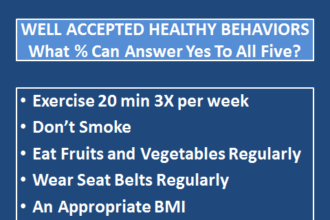A tremendous number of Americans have eye problems. Around 24 million Americans have cataracts and 34 million are nearsighted. Many of these issues can be prevented with a healthier diet.
Our eyes, complex and delicate, allow us to connect with the world, experiencing life’s moments in vibrant color and detail. This crucial aspect of our health often goes overlooked, until we encounter problems.
One essential component often associated with overall well-being but less acknowledged for eye health is the powerful antioxidant. We mentioned that antioxidants play an important role in our overall health and are used by a variety of holistic healthcare professionals. However, we didn’t mention that antioxidants are very important for our eye health. These remarkable substances, with their ability to fight against damaging free radicals, play a significant role in maintaining and even enhancing our eye health.
There are a number of ways to get more antioxidants. This can include eating the right superfoods.
This article delves into the world of antioxidants and how we can harness their power for natural eye health.
Understanding Antioxidants
What are antioxidants? Simply put, they are our body’s valiant defenders against free radicals – unstable atoms that cause harm to our cells, lead to various diseases, and accelerate aging, a process known as oxidative stress.
Natural antioxidants are critical to our overall health. They shield us against conditions like heart disease, cancer, and neurodegenerative diseases. They are present in a wide array of food sources and can also be naturally present in our bodies.
These vigilant molecules work by donating an electron to free radicals, neutralizing their harmful potential and preventing cellular damage. Like an invisible shield, they protect our bodies from the inside out, making their inclusion in our diet and lifestyle strategies essential for optimal health.
Specific Antioxidants Beneficial to Eye Health
Numerous antioxidants offer specific benefits to eye health, including those we’ll talk about below.
Lutein
One type of beneficial carotenoid for the eyes is lutein. It gives fruits and vegetables their vibrant colors. It’s found in high concentrations in the macula — the part of the retina responsible for central vision. It works as a natural shield, protecting the eyes from harmful blue light and oxidative stress.
Zeaxanthin
Like lutein, zeaxanthin is also a carotenoid and shares many of its beneficial properties. Zeaxanthin works alongside lutein in the macula to protect the eyes from harmful light rays, acting as a kind of natural sunglasses. Together, they help to maintain healthy cells within the eyes and can slow the progression of eye diseases such as AMD.
Beta-Carotene
It helps in the formation of rhodopsin, a protein that aids our eyes in adjusting to light changes. Moreover, beta-carotene assists in maintaining a healthy and clear cornea and can help to prevent eye conditions such as dry eyes.
Speaking of dryness, it can be because of different things, and chlorine irritation is one of the culprits. According to EyeFacts, a potential solution to such is the use of eye drops. It can provide the hydration your eyes need.
Glutathione
Often referred to as the “master antioxidant,” glutathione neutralizes harmful free radicals. It can prevent oxidative stres. By supporting cellular health and function within the eye, this antioxidant helps to preserve eye health and maintain good vision.
Riboflavin
Also known as vitamin B2, riboflavin protects the eyes from oxidative stress. At the same time, it supports the function of glutathione, which is equally essential for healthy eyes. It’s also crucial for the prevention of certain eye conditions such as cataracts.
Zinc
It’s present in the retina and helps in the production of melanin, a pigment that protects the eyes. Zinc works with other vitamins and minerals to prevent AMD and it’s essential for maintaining the health of the retina.
Vitamin C
A powerful antioxidant, Vitamin C is crucial for maintaining the health of the blood vessels in our eyes. It helps to produce collagen, a protein that provides structure to the cornea and sclera of the eyes. Regular intake of vitamin C can help to prevent cataracts and slow the progression of AMD.
How to Boost Antioxidant Intake Naturally
Naturally enhancing our antioxidant intake primarily involves adopting a balanced, colorful diet. Carrots, sweet potatoes, and leafy greens are high in Vitamin A and Beta-Carotene. Citrus fruits, strawberries, and bell peppers are rich in Vitamin C. Nuts, seeds, and spinach provide good amounts of Vitamin E. For Lutein and Zeaxanthin, look to green leafy vegetables, eggs, and corn.
Aside from diet, other lifestyle practices such as regular exercise, maintaining a healthy sleep schedule, staying well-hydrated, and avoiding smoking can all support the function of antioxidants and contribute to overall eye health.
Risks and Considerations
While antioxidants are beneficial, excessive intake can be counterproductive. It might lead to toxicity and even exacerbate certain health conditions. It’s always wise to consult a healthcare provider before making significant dietary changes or starting new supplements.
Conclusion
The power of antioxidants extends far beyond general well-being – they are critical in preserving and promoting the health of our eyes. By incorporating a variety of antioxidant-rich foods into our daily diet, we can harness their benefits and adopt a proactive approach to eye health, naturally warding off vision impairments.
Your eyes are a reflection of your overall health, and by giving them the care they deserve, you can ensure they continue to serve you well for years to come.







